Why a Professional Certification is More Important Than a Degree Today

Introduction
With the fast-fluxing change in the present working environment, the
conventional weight given to a college degree is dynamically altering.
Degrees hold value, yet no longer are they the only gateway toward achieving
success in a career. Employers are now focusing on professional certifications that are indicative of real expertise and job-specific skills. With industries being driven
on the technological and dynamic front, the demand for talent that is current,
flexible, and specialized is at an all-time high. This demand, for precisely that reason,
is met by certifications, which provide a focused, real-time experience that is generally more in tune with market realities than traditional academic offerings. Furthermore, certifications are easily accessible, fairly economical, and fast to acquire, providing entry points for both novices and experienced professionals. This blog discusses
why professional certifications nowadays become a center point for career advancement and mostly outweigh degrees.
1. Relevance to Industry Demands
In the rapidly changing labor market of today, various professional
certifications are specifically designed to suit existing industry requirements. Unlike traditional degrees, which may become outdated due to curriculum lag, the
updating of certification examinations often reflects the current technologies, tools, and best practices. This up-to-date knowledge and practical skills in a specialized
area make prospective employees with certifications attractive to employers. For example, digital marketing certification, cloud computing certification, or
data analysis certification would contain techniques pertinent to the latest platforms and working methods adopted by commercial enterprises. These credentials are designed with industry input, so they remain ever so relevant and applicable in practice.
In contrast, certification training programs provide hands-on training and
assessment like the kind one would experience performing the actual job.
Therefore, certified professionals usually contribute with minimal delay starting on
day one, shortening the period of onboarding and enhancing productivity. When speed and relevance are key, certifications offer the fastest and most accurate route
for aligning one’s skills with market expectations and the job market dynamics.
2. Faster Career Advancement
Certifications: A Faster Path to Career Growth
Enhancing career opportunities with professional certifications is much
faster than earning degrees. Among the timeframes, typical college degrees take about three to four years to complete, while certifications often take a few weeks
or months. This short duration gives professionals the chance to upskill quickly and in a real-time manner according to job market trends. A software engineer who wants
to learn new programming languages or tools such as AWS or Microsoft Azure does not need to return to school. Such certifications can lead to promotions, salary increases, or new job offers more quickly than a second degree would. Explore how leading companies value skills over degrees in this insightful Harvard Business Review article
Why Employers Value Certifications
Many organizations use certifications as a guideline for career progression, for instance, in computing and IT project management, finance, or healthcare. Certifications such as PMP (Project Management Professional), CISSP (Certified Information Systems Security Professional), or Six Sigma can qualify you for higher roles in the company and even lead you to top positions. They are considered signs of a commitment to lifelong learning and developmental progress, which employers admire very much. However, by itself, a degree will not allow a person to turn around or climb up the corporate ladder efficiently. Hence, certifications
can make a powerful instrument, creating a fast, focused, and measurable career advancement.
3. Cost-Effectiveness and Accessibility

Of course, one of the main advantages of professional certification is that
it really is cheap and accessible. A degree from a university would cost its
students thousands or even lakhs of rupees on top of all extra costs for books, accommodation, and travel. Most certifications, on the other hand, are quite easy on the pocket and normally offer online study from anywhere. Hence, those who may
not have ample resources or time to invest in a full-time degree program are open
to certification programs.
Many places provide the same affordable rate and flexible timing for their
certification courses, such as Coursera, Udemy, LinkedIn Learning, and
government-sponsored portals. These courses work especially well for people who want to acquire further qualifications without quitting their jobs. Besides, learning
that is directed toward providing specific skills makes sure that the learners get maximum value for their money. Sometimes, even employers reimburse the
employees for the certification fees, seeing that their businesses are going to gain the most from it. The winning combo is low cost, flexible learning, and application! As education is being democratized, then one can say professional certifications are an inclusive path through which one can acquire skills and gain a career.
4. Specialization and Niche Skills
Professional certification is important for specialization in specific areas that
might not have been covered by one’s degree. An example of this is marketing graduates pursuing certifications in SEO, Google Ads, or content strategy to
develop useful skills that employers want. An IT professional, conversely, can
specialize in cybersecurity, blockchain, or cloud architecture, areas that a computer science degree may not have provided exposure to. Such kinds of certifications, therefore, demonstrate that the holder has specific knowledge about a certain tool, platform, or methodology in order to differentiate themselves from very many people trying to find a job. Certifications for different fields like finance, health care, and design also show competency in a specific compliance, regulation, or software, which is critical to performance. This is called micro-credentialing, through which professionals can tailor to their needs regarding any portfolio of skills that meets their career aspirations.
Talent with specialized abilities is preferred over regular graduates because they require less training and can deliver from day one. Since certification is a narrow approach, people with a general degree will find it only valuable in certain roles; however, it is indeed diving into the bottom of their interest. The market for niche knowledge continues to widen as industries change, and professional certifications offer a very effective way to acquire that specialization.
5. Recognition by Employers
An increasing number of employers in different fields regard professional certifications as credible proof of candidate skills. Certifications bestowed by established institutions such as Google, Microsoft, Amazon, Cisco, or PMI are generally regarded as the quality benchmarks. Many job postings nowadays mention certification specifically as a preferred qualification, if not a requirement. This trend shows how hiring is becoming oriented to skills and demonstrable competence rather than merely skills attained through traditional academic methods. In rapidly changing fields like IT, digital marketing, and data science, employers are known to disregard resumes that lack relevant certifications no matter what degree credentials they may have.
Certifications assure that a particular candidate can perform specific responsibilities; thus, the hiring is quicker and surer. Besides, certifications are tied to the jobs performed and applicable areas, being accepted as trustworthy. The skills gap being faced by employers in new technologies and practices today is helped to be narrowed down by certifications. In the present times, worth an enormous amount can be weighed in sectors against a degree certificate for landing a job when considering time, cost, and job-readiness. Hence, with increasing recognition by employers, certifications are made a strategic tool for entry and progression into a career.
6. Continuous Learning and Adaptability

It is possible to continue learning and adapting in today’s rapidly changing technological and industrial environments. Professional certification facilitates the culture of lifelong learning and helps individuals get up-to-date with trends and innovations. It is different from a degree that one does once and for all: one may take certification programs through various career stages to stay on top of the game. They prompt professionals to put in that extra time and effort to make their old understanding new, try out new methods or approaches, and work toward proactive change. This is one of the most critical qualities that the job market can offer today, because work roles change so frequently and new roles appear almost every day. For certification renewal or update programs, one may work in synergy with evolving industry knowledge. Thus, professionals will remain flexible, adaptable, and even grounded in the event of job disruptions or shifts in demand.
Most importantly, certifications show the kind of temperament employers really appreciate among employees who believe in self-improvement and can easily adjust to new challenges. The mental state tackles innovations directly into the career path. Certifications achieve, therefore, the advancement in mindset typical for curious, innovative, and future-equipped people to adopt. This is even more true with regard to the digital sectors: if one is static, one can quickly become an obsolete professional. Certifications represent precisely that spirit that today lives dynamically in employment—always learning, always changing.
7. Real-World Application and Practical Skills
Data-Driven Strategies in the Digital Era
It is 2025, and data is driving every successful digital marketing strategy. For entrepreneurs, employing analytics means better decisions, enhanced targeting, and measurable growth. Marketing without data equates to an expensive guessing game for startups and small businesses. Entrepreneurial digital marketing provides specific insights on audience behavior, campaign efficiency, and ROI. One can view website visits, user engagement, conversion rates, and customer demographics in real time via analytics tools such as Google Analytics, Meta Business Suite, and CRM dashboards.
Real-Time Insights Save Time and Money
Using this incomplete knowledge, entrepreneurs have applied lessons learned to refine their messaging and focus their budgets on strategies that seem more likely to yield results. For example, if Instagram campaigns are not generating click-throughs, the platform can be used to check performance metrics, test new creatives, or simply stop spending there and direct all budgets toward platforms that do. These immediate insights save time and money.
Leveraging Tools for Growth and ROI
Email marketing tools give data on open rates, click-throughs, and conversions, while entrepreneurs can segment audiences and use it to form pinpoint-targeted messages that resonate much deeper, thus increasing loyalty and sales. In addition, digital-marketing automation tools are integrated with AI-enabled predictive analytics that highlight trends, project sales, and propose recommendations for action. This further helps entrepreneurs to anticipate, wisely allocate resources, and react quickly to market changes.
In a competitive digital realm, the matters of intuition alone no longer suffice. Entrepreneurs foster a data-driven approach to digital marketing by performing ahead of the pack-competing entrepreneurs who do not. Entrepreneurs get clarity, confidence, and a clear-cut road to sustainable growth. Eventually, data makes entrepreneurs hold hands while making decisions and refining strategies to extract the most value from each paid marketing dollar.
8. Flexibility for Career Switching

Professional certifications give unmatched flexibility to a professional who wants to change or steer a career in a different direction. Many individuals in this volatile job market need to change fields or want to change fields for whatever reason. Such certification courses are shorter than those for conventional degrees, which usually take years and huge chunks of money to attain. Courses are targeted for much faster learning of new skills. A teacher could go for an eLearning certification to get into the instructional design field, and an engineer wanting to get into data science might get a Python certification or AI certification. With this, an individual can quickly reskill and open himself to entirely new industries and opportunities that would never be available.
They permit people to prove credibility in an unknown domain without starting all over again on the undergrad academic level. They serve as proof of intention and capability to help another person trust that what they say about change is true. For that reason, many people corner those new qualifications to supplement existing experience to pave the way for a smooth and effective transition. With the seriousness that fluidity is taking in careers, the professional certificate bestows the flexibility and validation that adequacy needs to make a transition most anywhere at any stage of one’s life.
Looking for a faster, job-ready alternative to a degree? Enroll in GICT’s professional certificate courses today and start your career confidently!
Conclusion
Even though academic degrees have not lost their basic significance, they have more or less stopped being the only ticket to a job or a salary. This depends on one’s agility, specialization, and current information—things that professional certifications deliver best. From being the least expensive and saving time to making room for changing careers and still climbing fast, it has always been a weapon for keeping professionals fully armed in a rapidly changing marketplace: the specialized, practical, flexible pathway of learning that meets emerging employer demands. Just as industries start placing more importance on real-life skills and actual results, professional certifications don’t just turn out to be another option—they’re quickly becoming a preferred norm. Investing in the right certification may turn out to be your best move ahead, whether you’re starting your career, trying to get a promotion, or switching fields completely.



